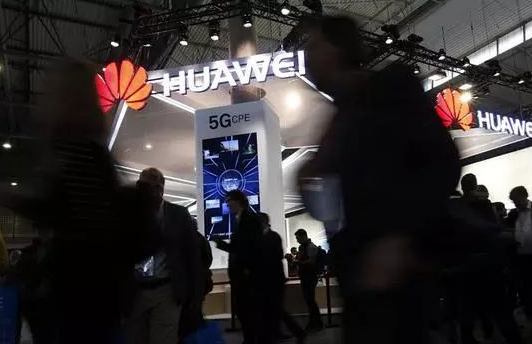Huawei has been lobbying the Australian government in recent months and has finally been rejected.
After the US issued a security warning, Australia also joined the ranks of the Chinese mobile phone. The Australian Department of Defense revealed that they will no longer use Huawei mobile phones and ZTE mobile phones. In addition, the Australian Ministry of Defence also stated that the Ministry of Defense has a large number of aging ZTE mobile phones, which are used for non-secure voice and text transmission.
A spokesperson for ZTE said: "The Australian Ministry of Defence has a large number of old ZTE mobile phones, mainly used for non-confidential voice and text services. Now that ZTE's mobile phone fails, it will be another non-confidential voice and Replaced by SMS phones. The Australian Department of Defense conducted a risk assessment of these non-confidential voice and SMS phones, and finally concluded that "these phones will not pose a security risk to the Department of Defense."
According to the reporter, "If the CCP wants to use the technology (5G) to provide such data, it can do so. They can engage in espionage or sabotage through telephone service." As a network security expert and former senior US diplomacy The official's James Lewis said that US technology companies can say no to the US government, but Huawei can't say no to the Chinese government, so Huawei can't participate in the Australian 5G network.

Washington’s national security agency expressed concern to Australia when Huawei tried to provide 5G mobile phone network equipment for Australia. Lewis believes that the main problem with Huawei is that the Chinese authorities will force Huawei to monitor its users.
When Australian Prime Minister Turnbull visited the United States, the top officials of the National Security Agency and the Department of Homeland Security said that if Huawei participates in the 5G network construction in Australia, it will bring security risks and indicate that the cyber espionage in Beijing is the United States and Australia. One of the "two highest risks" on the cybersecurity agenda.
The reason why the United States pays so much attention to 5G technology is, as one official who participated in the review said, “When you control the telecommunications network, you can control everything.†They believe that 5G is more strategic than previous generations of mobile technology. Stronger, because the new network, which will be launched next year, will control data such as self-driving cars and carry a larger amount of data.
Australia's telecom giants Optus and Vodafone are currently working with Huawei to launch 5G, with the exception of Telstra's Telstra, which uses Ericsson as a 5G supplier. There are only a handful of global suppliers of 5G technology, except for Nokia and Ericsson, which are Huawei and ZTE in China. The Australian Financial Review said that in order to alleviate national security concerns brought about by products, Huawei has been lobbying the Australian government for several months.
Huawei was blocked overseas and was accused of "opaque relationship with the Chinese government."
This year, Huawei has become the center of US security concerns. Recently, Verizon and AT&T of the United States both withdrew the sale of Huawei's latest mobile phone, Mate 10 Pro. Earlier this month, the US Central Intelligence Agency (CIA), the Federal Bureau of Investigation (FBI) and the National Security Agency told their Senate Intelligence Committee that they would advise Americans not to use products and services from Huawei or other Chinese handset manufacturers.
Federal Bureau of Investigation Chris Wray told the committee that “a foreign government-controlled company or entity with different values ​​is allowed to gain a real power position in our telecommunications network, which is very worrying because it provides The ability to put pressure on us and control our telecommunications infrastructure, the ability to maliciously modify or steal information, and the ability to conduct undetected espionage. These are our concerns."
After the US intelligence chiefs issued a direct warning, the Australian Ministry of Defense also stopped using Chinese-made Huawei and ZTE handsets. There were dozens of Defense Department officials who had been using it before, but the Ministry of Defense told Fairfax Media that they "have no Huawei mobile phones in use" and that ZTE mobile phones still in use will also be used by other brands. Mobile phone replacement.
Both Huawei and ZTE are listed companies, but the US Federal Bureau of Investigation said in a 2015 report that there is an "opaque relationship" between Huawei and the Chinese government, and ZTE has expressed similar concerns.
In fact, as early as 2012, due to cybersecurity issues, Australia banned Huawei from participating in the National Broadband Network (NBN) bidding according to the recommendations of the Australian National Security Intelligence Organization (ASIO).
At the suggestion of the Australian Security Intelligence Agency ASIO, Huawei was prevented from participating in the Australian National Broadband Network NBN. Not long ago, the Turnbull government took over the initial construction of the planned submarine Internet cable between Solomon Islands and Australia to prevent Huawei from participating in the project as a subsidiary.
At this week's Mobile World Congress, Huawei's rotating CEO, Ken Hu, pointed out that "our safety record for the past 30 years has been ignored by the United States, which is unfair to us. The US accusation is based on unfounded doubt."
Ultra-Fast Scanning External Cavity Tunable Laser
Ultra-Fast Scanning External Cavity Tunable Laser,Tunable Diode Laser Analyzer,Applications Tunable Laser,Tunable O-Band Laser
AcePhotonics Co.,Ltd. , https://www.acephotonics.com